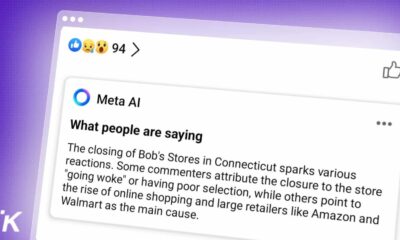Facebook really didn’t do a great job explaining the Trump ban
This really isn’t surprising.

Just a heads up, if you buy something through our links, we may get a small share of the sale. It’s one of the ways we keep the lights on here. Click here for more.
The Facebook Oversight Board has recently released a transparency report through which it publicly accepts Facebook’s request to review the media giant’s cross-check program and to recommend changes.
Facebook will also share documents related to a report from The Wall Street Journal that described how the cross-check program protects VIP users from the media platform’s enforcement policies.
In its report, the board has stated that “In the board’s view, the team within Facebook tasked to provide information has not been fully forthcoming in its responses on cross-check. On some occasions, Facebook failed to provide relevant information to the board, while in other instances, the information it did provide was incomplete.”
The board has also specified that its “credibility” is dependent on it being able to trust Facebook as presenting information that is “accurate, comprehensive, and paints a full picture of the topic at hand.”
Facebook’s lack of transparency has been called “not acceptable”, by the board, considering that the company did not initially specify that the cross-check program played a part in the moderation of former President Donald Trump when he was banned for violating the platform’s user policies.
Facebook requested the Oversight Board’s guidance regarding the cross-check program, in September. The board has recently stated that it will now attempt to contact previous Facebook employee whistleblowers, as well as academics and researchers. It will also request the public’s feedback in the following days, similarly to its decision after the Trump ban.
Although the release of this transparency report is unprecedented, the board has stated that it will release similar reports quarterly
Approximately 524,000 requests for review have been submitted to both Facebook and Instagram, between October 2020 and June 2021. Roughly 46 percent of these originated from the United States and Canada. These figures, however, do not reflect the total demographic makeup of Facebook and the board has stated that it will attempt to draw more reports from other areas.
The board has also stated that “if anything, we have reason to believe that users in Asia, Sub-Saharan Africa, and the Middle East experience more, not fewer, problems with Facebook than parts of the world with more appeals.”
The Oversight Board has decided 11 cases in the first quarters of 2021, which has led to Facebook also identifying 38 cases in which the moderation process was incorrect. This has led to 35 pieces of content being restored.
The guidance offered by the Oversight Board may have implications other than tweaking the cross-check program. In July 2021, Facebook also discovered that it had lost a piece of its moderation policies for approx. three years.
The board also mentioned in its report that “in areas where we feel that Facebook is falling short, such as transparency, we will keep challenging the company to do better.”
Have any thoughts on this? Let us know down below in the comments or carry the discussion over to our Twitter or Facebook.
Editors’ Recommendations:
- There’s so much Facebook news happening now, and none of it is good
- Facebook is changing its name – here’s what Twitter thinks it should be
- Twitter now lets anyone host their own Twitter Space
- Instagram will finally let you make posts from desktop































